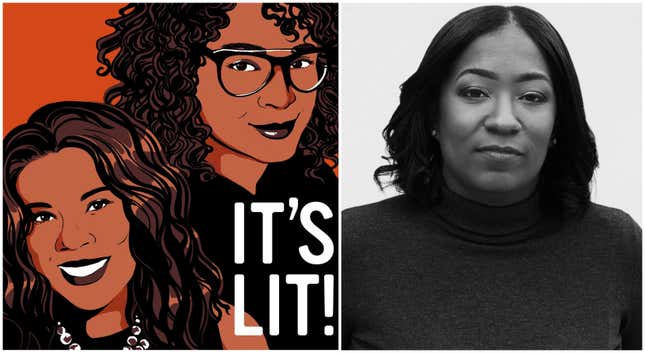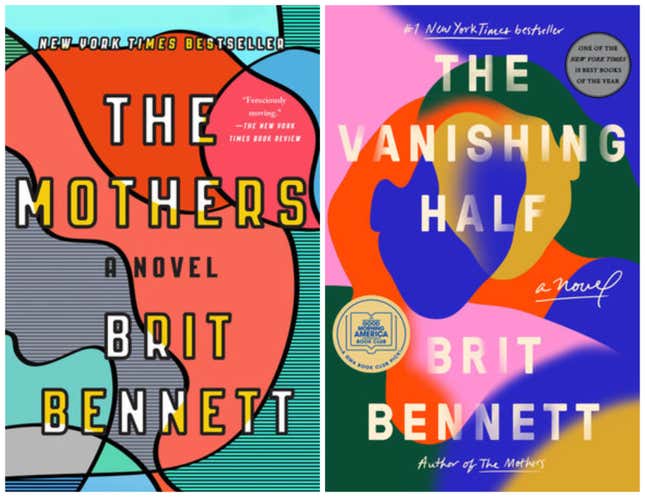
There’s a reason Black women call each other “sister.” Even if we bear no blood relation or resemblance—and despite our broad variances in color, economic and educational access and life experience—there is an innate knowing between Black women—of what it is to be a Black woman.
Writer Brit Bennett has a deep understanding of this knowing; since 2016, she has delivered not one, but two bestselling novels each plumbing the nuanced depths of African American women’s relationships. Through her characters, the sustaining and sometimes tenuous sisterhoods that protect, support and in many ways define us are explored to dramatic and deeply thoughtful effect.
“I think I knew from a young age about that kind of primacy of these relationships between and among Black women specifically,” Bennett, a 2017 The Root 100 honoree, tells us on this week’s episode of The Root Presents: It’s Lit! “I mean, I think a lot of the most intense relationships in my life have been with my female friends...in a lot of ways, I think that those have been really the primary relationships in my life. So I think that that’s one of the reasons why I find them to be so fascinating,” she continues. “But I think also like they are so fraught and also very stressful, often because of that intimacy, like it’s that combination of the closeness of the bond which heightens the stakes for anything that happens when you’re very close to somebody. That means that they know exactly how to hurt you.”
That certainly holds true in both of Bennett’s novels thus far; The Mothers, set in Bennett’s own hometown of Oceanside, Calif. delves into respectability politics, the inheritance of trauma and loss, and the colorism that continues to plague Black consciousness throughout the world. Her second, the No. 1 New York Times Bestseller The Vanishing Half (2020), takes the conversation even further, presenting a new take on the phenomenon of racial “passing,” as previously famously explored in works like Nella Larsen’s novella Passing and both film iterations of Imitation of Life.

As Bennett explained, while passing wasn’t part of her own immediate family narrative her second novel was in some ways even more personal that her first. “The Vanishing Half became this way to kind of explore some of my family history,” she shares. “My mom leaving Louisiana and going to California, my dad being from California, it became a way to kind of marry both of those sides of my family and thinking about, yeah, these different Black experiences in different parts of the country.”
It also became a way to reimagine passing for white in an era when it’s no longer a requisite for survival or mobility.
“I wanted to write a different passing story,” says Bennett, who was largely inspired by Imitation of Life. “I wanted to write one that kind of reflected my standpoint as a 21st-century writer who thinks about identity in a way that’s more fluid than I think a lot of these some of these earlier 20th-century stories do. So what does it mean to pass even if we think that these categories are inherently kind of fluid? What does that even look like?
“I didn’t want it to turn into Oppression Olympics or finger-pointing in any type of way,” she further explains. “I wanted to think about how this ideology of colorism, which, you know, of course, comes from white supremacy—is a child of white supremacy—how that ideology of colorism affects all of us, no matter where you are along this color spectrum.”
Coincidentally, the long-awaited film adaptation of Nella Larsen’s Passing debuts at the Sundance Film Festival this weekend, meaning this is a conversation many of us will likely be revisiting in the coming weeks. With that in mind, Bennett’s approach to the topic proves even more timely, as it’s clear that the harm done by colorism—and white supremacy—is far from over.
Join The Root and the brilliant Brit Bennett on Episode 19 of The Root Presents: It’s Lit!: Talking Prose, Passing and the Power of Black Women with Brit Bennett, now available on Apple, Spotify, Stitcher, iHeart Radio, Google Podcasts, Amazon, NPR One, TuneIn, and Radio Public. Also available is a transcript of this week’s episode.

